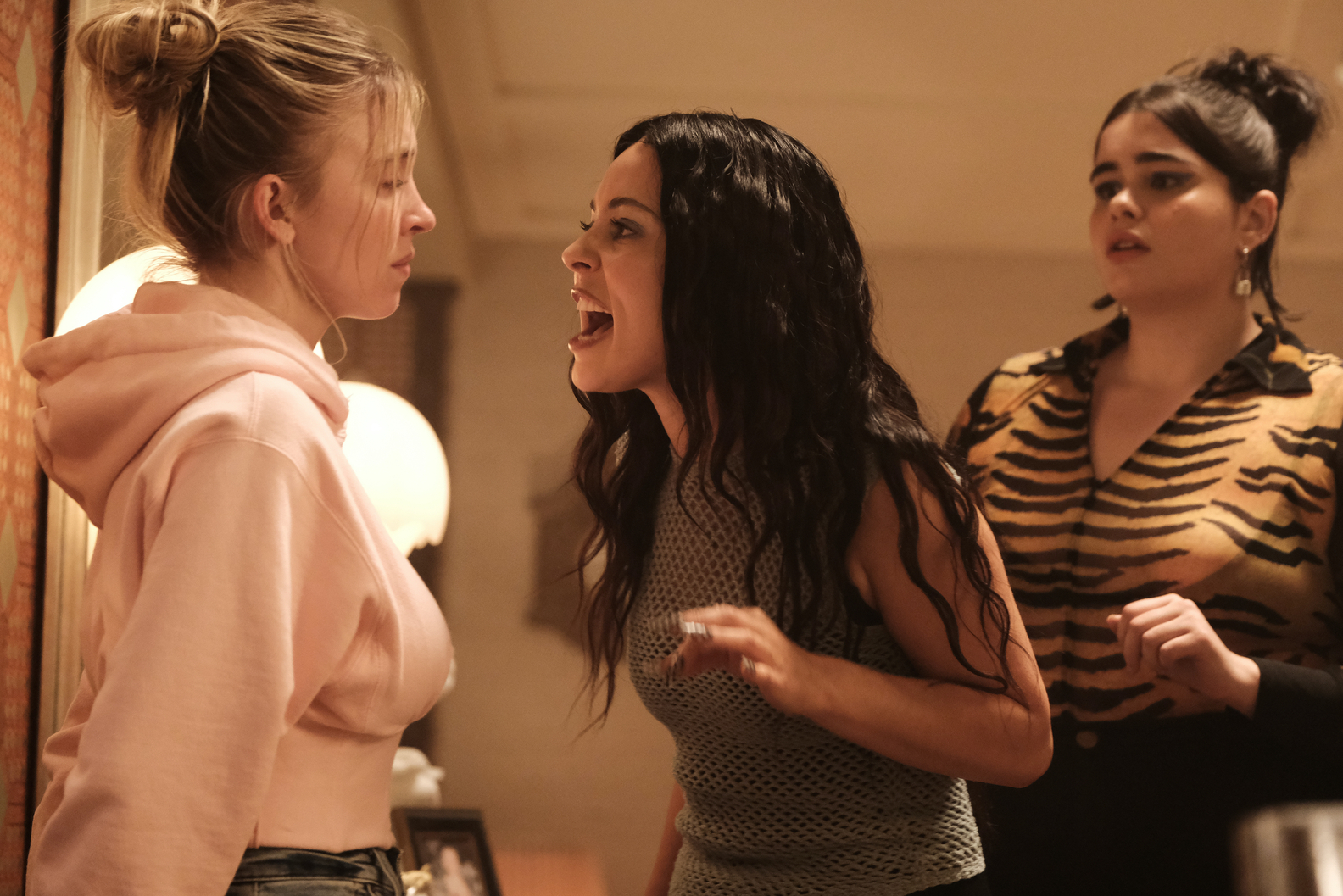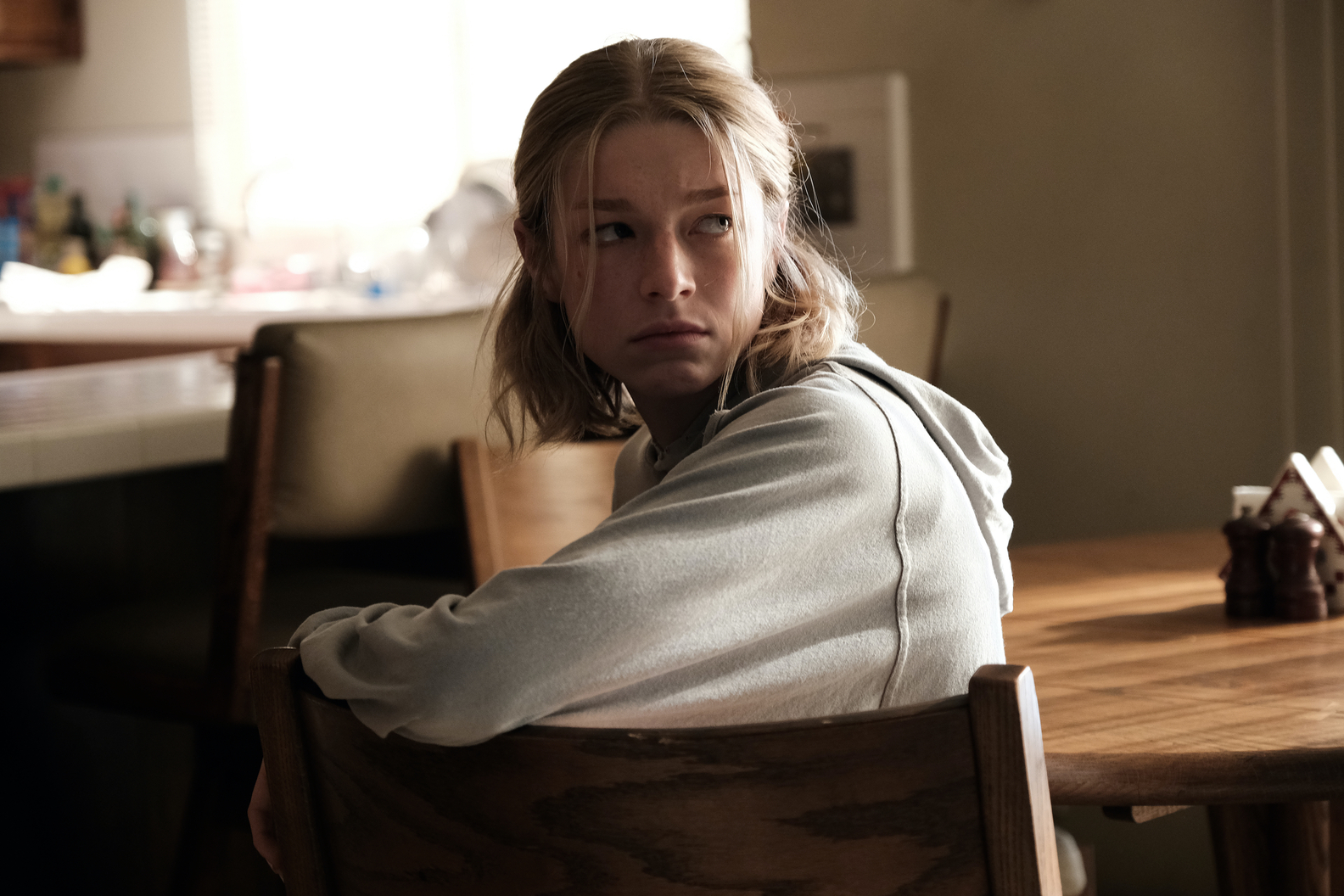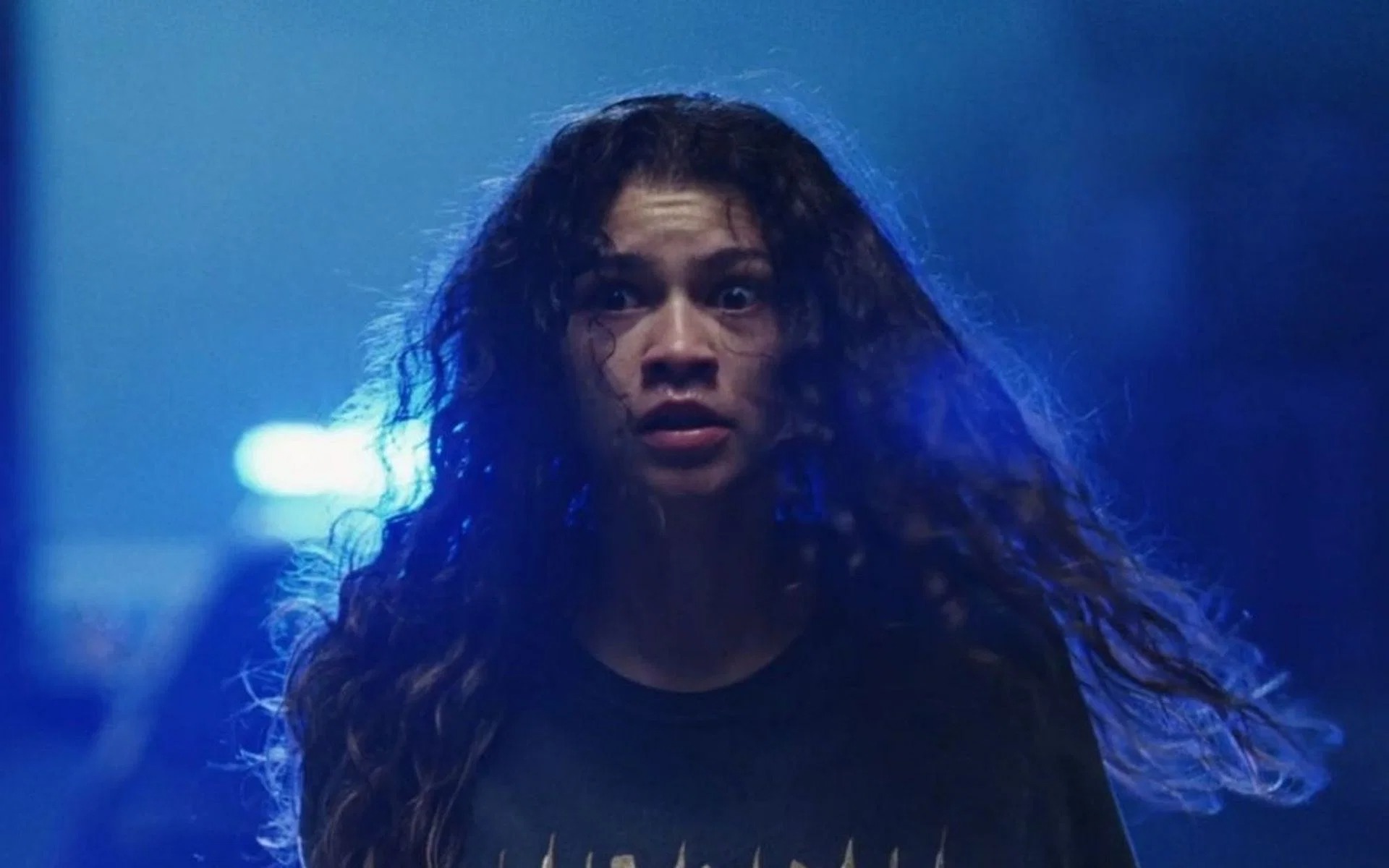This article contains spoilers for Euphoria season two, including episode five.
Every Sunday night, Euphoria grips America. Now in its second season, it has been a ratings hit, with viewership doubling since the first season aired. But if the viewers are running to their TV sets and laptops in their droves as soon as 9pm hits, many have felt like they’re doing so reluctantly. “I’m obsessed with the lengths people are going to to defend Euphoria,” @brokebackstan said last week, in a tweet liked 96,000 times. @keeweebandz tweeted: “Euphoria so bad. but I keep coming back to it. The show itself is a drug. Sam [Levinson, the show’s creator] has created a paradox. Who is really the addict here?”
But last night’s episode five, “Stand Still Like the Hummingbird”, is where things seem to change. The strange, divisive meandering of the teenagers of East Highland has finally sharpened. It is, without a doubt, the most driven episode so far.
While Euphoria’s first season felt like a series of character studies, introducing us to the show’s central figures through the most salacious and damning means possible, season two has been reliant on vibes from the off. It’s leaned into hedonism and bad behaviour, amped up the on-screen cock count, and given some underused characters more screen time, while swiftly, inexplicably, devaluing others. Things are happening: Rue is into Jules but is also into Elliott, while Elliott is also into Jules who is into him. A threeway is ongoing, albeit secretly. Nate is dealing with the great, glorious descent of his dad Cal, whose attempts to retrieve a recording of him having sex with Jules, then still a minor, has now lead to Cal dismantling his nuclear family set-up. Last time we saw him he had admitted to having sex with, well, everyone behind his wife’s back. Meanwhile, Nate’s also having sex with Cassie, until now the show’s MVP, while Maddy — Nate’s on-off ex and Cassie’s best friend — remains oblivious to this fact. These felt like the key storylines for the season, while Rue continued her shaky tightrope walk of failed sobriety. But where was it heading? And was this cacophony of beautiful, directionless TV making simply a wider metaphor for the mess of modern teen existence?
Jeremy O. Harris, a consultant on the show, seems to think so. Tweeting after episode five aired, as he — and many others, who’ve dug the show’s vicarious attempt to follow the beat of its own drum — felt vindicated at the change in audience opinion, he pointed towards what he felt were the intentions of Euphoria season two. Comparing it to Dickens, he said he sees “this season… as a Gesamtkunstwerk that rejects the ‘episode’ by ‘episode’ mentality of most shows.” (BTW gesamtkunstwerk is a German phrase that translates into “total artwork” — something that should be judged on a wider scale rather than by picking apart its individual pieces.)
It took four hours – almost half a season – for Euphoria to lay the groundwork for a really robust plot progression, which seemed to be what most fans were looking for. Jules, reeling from Elliot’s recent revelation that he and Rue have been taking drugs together, tells Rue’s mother Leslie about her relapse. It prompts Rue’s mother to take the stash of drugs Rue had tenuously agreed to “sell”, provided to her by school teacher-turned-dealer Laurie (arguably the weirdest character of the season), and flush them down the toilet, leading Rue into a deep spiral of withdrawal and fear. She agrees to go to the ER, but when Leslie reveals she’s taking her to rehab instead, she escapes, crashing Lexi, Cassie, Maddy and Kat’s hangout. Rue reveals to the group that Cassie has been sleeping with Nate, breaking the longstanding strain between the two best friends and opening a wound to be explored later down the line. Rue then calls in on Fez, who kicks her out after she tries to take some of his grandma’s meds, leading her on a petty crime spree across town, gathering up cash and jewellery in an attempt to appease Laurie, who doses her with morphine and threatens to make her repay her debts through prostitution. After weeks of a show that rumbled along, teasing tension but never giving us release outright, episode five felt like the balloon finally bursting.

Arguably, it feels like we’ve earned it as an audience. The traditional serialised TV Jeremy refers to in his tweet relies on the convenience of cliffhangers as a means for us to return. We come back to see what happens next, whereas, from the outset, Sam Levinson and his team of co-writers haven’t given us any allusion to the fate of these characters.
When you watch shows in the way Euphoria airs — in a classic, some say outdated anti-binge method, with a new episode every week — you feel like you’re owed something. But this method, and focussing solely on the rewards we get from individual episodes, discredits the power of a series as a whole. Think of it like reading a book: do we judge the quality of a novel’s storytelling based on a chapter, or the total text? Moreover, can something we once saw as disparate suddenly make more sense when we look back on it once a whole project is finished?
It’s an interesting, abstract (maybe even distinctly conventional?) way to form TV, but the rewards are far sweeter. It bears relevance to Luca Guadagnino’s miraculous but underseen miniseries We Are Who We Are, another HBO endeavour that saw a bunch of kids on an American military base in Italy live out their lives. Storylines were sparse and tenuous, and a lot of the time it felt like nothing was happening. All you could do was sit and wait for it all to slot into place, which it did, in perhaps one of the most satisfying and pristine finales in recent memory. It’s interesting that that show was originally supposed to premiere in one eight-hour-long screening at Cannes Film Festival, in which it would have been consumed as one creative entity, and treated as such.

Perhaps a similar treatment — or even a big, streaming-style drop — would have softened the backlash against Sam Levinson’s great vibe piece. Euphoria remains one of the most compelling shows on television, and the mechanics of its crescendos, like the morose, monumental fifth episode, make those rare bold statements hit much harder. In just one hour of TV, Euphoria has managed to transform itself from a show that Christian media and right-wing pundits considered synonymous with the glorification of drug consumption, into one of our generation’s most powerful statement pieces against it.



